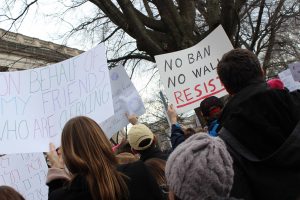By Jasmine P. Stansberry
Oct. 24, 2017

Cordie Cheek, Albert Gooden, Jesse Lee Bond and Elbert Williams are the names of four African American men who were found dead by Tennessee authorities.
Yet, they are only four of countless men, women and children who were murdered on Tennessee soil in the past 150 years because of their race. Many of their murders remain unsolved.
Now, steps are being taken by the Tennessee Historical Justice Coalition to research the events surrounding the deaths of African Americans since the Civil War.
“The fact that it hasn’t been done demonstrates that there is a need,” said attorney Alex Little, a member of the coalition.
In 2016, Congress reauthorized the Emmett Till Unsolved Civil Rights Crime Act of 2007, which allows the Department of Justice and the Federal Bureau of Investigations to investigate and prosecute criminal civil rights violations that led to death and occurred before 1980.
This June, Tennessee lawmakers passed HB1306, a new bill that allowed for the implementation of a Special Joint Legislative Committee, which will investigate civil rights crimes and cold cases that took place in the state.
On Sept. 14, the coalition met at Bone McAllester Norton PLLC, a law firm in downtown Nashville, to discuss the approach that the group will take, as they proceed to bring testimonies from a few of the cold cases before the Special Joint Commission of the Tennessee Legislature.
The Tennessee Historical Justice Coalition is comprised of citizens across the state whose aim is to enlighten the public about injustices that have been buried in the annals of Tennessee’s past. These cases include arson and murder.
Countless victims, such as the four men, met an undeserving, injudicious fate of brutal death and while their cases went cold over the past few decades, their memories have yet to decompose.
Cordie Cheek, 17, was accused of raping a young, white girl in 1935. Cheek, who was indicted and released for a lack of evidence, was kidnapped from his uncle’s home, a few streets from Fisk University in Nashville. His body was found in Maury County, riddled with bullets.
Albert Gooden, 35, was lynched in Tipton County in 1937. He was accused of shooting and killing a white deputy. While being held in custody, six unidentified men kidnapped Gooden, hung him from a bridge and riddled his body with bullets.
Jesse Lee Bond, 21, was castrated and dragged by a car in 1939. The incident, which occurred in Shelby County, is believed to have been the result of an argument between Bond and a local store owner.
Elbert Williams, a founder and secretary for the Haywood County chapter of the National Association for the Advancement of Colored People (NAACP), was found dead in the Hatchie River in 1940. His wife viewed his body once it was pulled from the river.
“And when she looked at him she identified, yes, that’s him and she identified what appeared to be two bullet holes in his chest,” said coalition member John Ashworth.
Williams was last seen alive in police custody. Ashworth believes that Williams was the first martyr of the NAACP, preceding Florida organizer Harry T. Moore in 1951.
Politicians, attorneys and academics attended the meeting on Thursday, September 14.
The coalition will survey the state for information about cold cases that occurred between 1862 and 2017. The New Data committee, a subgroup that conducts research, reported that there are 392 cases that will be examined. Information regarding cases that identify living perpetrators will be reviewed by former prosecutors and law enforcement officers to determine the possibility of criminal prosecution.
“Hopefully, the General Assembly will be able to take in the scope of what has happened and help us come up with creative ideas to address it,” Little said.
The coalition also seeks to survey cold cases where religious places of worship, such as churches, synagogues and mosques were targeted for arson or vandalism.
The Civil Rights Cold Case Initiative also includes cases involving institutions, such as the Hattie Cotton Elementary school in Nashville, which was bombed in 1957 after there was a mandate to integrate the student population.
One issue of concern at the meeting was safety. One person said that some of the cases being researched might invite an unfriendly response from descendants of the alleged perpetrators, and possibly from people in communities where the crimes occurred.
This new initiative to reconcile the past will also require the involvement of current state officials.
“You had a period of decades of injustices being allowed to occur with complete impunity,” Little said. “There are people today who not only lived through Jim Crow but through murders that were happening with state sanction.”
Representatives from the coalition said that its objective is to survey civil rights cold cases, prosecute those that are viable, and encourage community reconciliation by bringing awareness to the public.
Jasmine Stansberry is a graduate assistant at the Benjamin L. Hooks Institute for Social Change, currently pursuing a Masters in History at the UofM. Her interests are Twentieth-century African-American history, with an emphasis on the Civil Rights and Black Power movements.
